 TV
TV « In Which We Fly To The Darkest Reaches Of Face »
 Tuesday, September 12, 2017 at 9:28AM
Tuesday, September 12, 2017 at 9:28AM 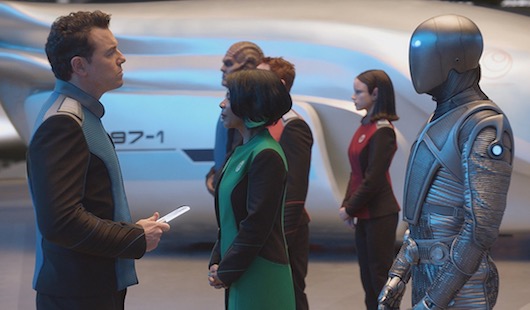
Generational
by ETHAN PETERSON
The Orville
creator Seth MacFarlane
Fox
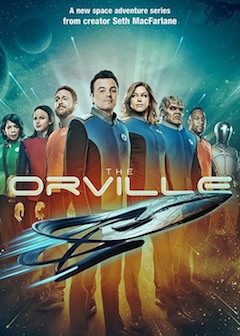
What is the mininum amount of enterprise you have to put into a creative task for it to be called original? Star Trek: The Next Generation was a smash hit from the beginning, with its first episode drawing an astonishing 27 million viewers on September 28th, 1987. Unfortunately, the entire first season of Star Trek: The Next Generation was utter dogshit, but that did not drive people away, since the only other thing on television at the time was Wheel of Fortune and reruns of M*A*S*H. Patrick Stewart carried the show. The sets were awful, many being reused from previous Star Trek films and television shows, and outside of Brent Spiner and Stewart, the acting was mind-bogglingly stilted.
In time this disaster of an hour of television found its way into some halfway decent writing. The show peaked with a tremendous fifth season, highlighted by the season's penultimate episode, a masterpiece of science fiction titled "The Inner Light." A lot of actors, directors and writers had to pass through Star Trek: The Next Generation to get to that level of quality. Is The Orville attempting the same five year plan? Because if so, I feel decently confident it may never get there.
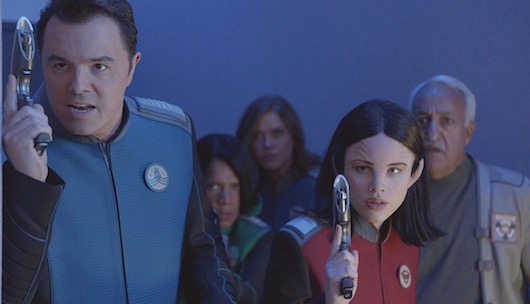
The Orville would normally be conceived as a parody of Star Trek, but it is stunningly sincere in its appropriation. Other than the normally calming presence of the Enterprise's second-in-command, Lieutenant Riker, even the roles of the crew of Ed Mercer (Seth MacFarlane) remain the same. Minorities and women are mere background noise, and yet the relationships between the sexes never advance past getting wackily twisted by alien influence before returning to a muted professionalism.
With CBS sending its most recent Star Trek show to die on its internet service, The Orville is the only brief for the viability of an alien-of-the-week series, and unfortunately for fans of this now-niche genre, it does not acquit itself very well. MacFarlane is an underrated actor with great delivery of lines and natural comic timing, not to mention his singing voice. Sadly, the cast he has surrounded himself with on this tin can leaves a significant amount to be desired.
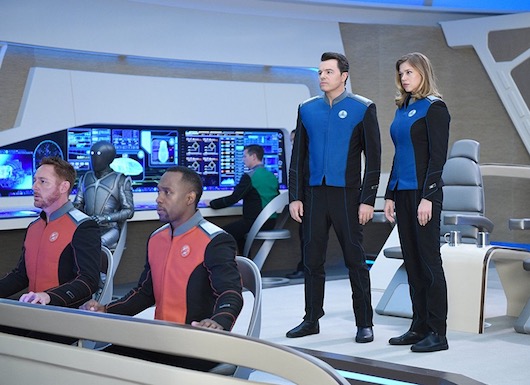
Portraying Mercer's love interest is a clunky Adrienne Palicki. The fact that their marriage fell apart after she cheated on him because he was absent all the time is the central source of "humor" in the show's first episodes. Unfortunately, jokes are few and far between in The Orville, which seems to think of itself as a dramatic series with a few light moments.
Star Trek: The Next Generation also featured quite a few jokes. Many consisted of applying basic human values to the strange practices and cultures that could be found in the universe's many worlds. This human-centric view has not aged very well — we now have substantial reason to believe there is no truly superior culture that exists, and the search for a different way to live makes a lot more sense than the idea of bringing our own views out to a galaxy at large. You want the Milky Way to find out about r/The_Donald?
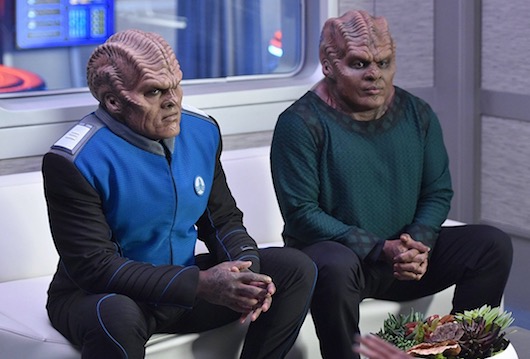
As such, The Orville is ill-timed. Star Trek: The Next Generation emerged at the end of the Cold War, where democracy itself was sufficiently virtuous to think that spreading various Western values along with it was a worthy proposition. Well, it worked — the world now mostly consists of various messy democracies in our own image.
It is time to take a hard look in the mirror. The world has to teach us something — about how we value human and animal life, how we deal with our natural resources, and how we deal with economic inequality. There must be some evolution, since it is the sole principle that allows life to continue subsisting. We get none of that in The Orville — just the same blandishments and science fiction premises barely based in science, and hardly creative enough to be called fiction. You would be forgiven if you thought you were simply watching a rejected TNG script from thirty years ago.
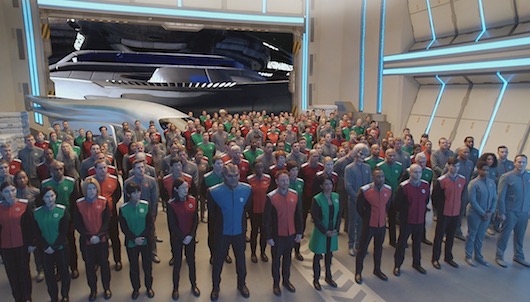
McFarlane must really like Star Trek. Far more probable, however, is that he saw the economic sense behind it. Shot on a limited variety of sets, and only requiring one or two shots of mediocre CGI from time-to-time as the only evidence this show is not thirty years of age, The Orville is not really much of a risk for Fox, who seemingly has been struggling to produce live-action hits since The X-Files.
It is substantially more of a shaky venture to spend your valuable time watching it. Never in my wildest dreams did I think a show made in 2017 could be as stupidly self-important as Babylon 5.
Ethan Peterson is the reviews editor of This Recording.































Reader Comments